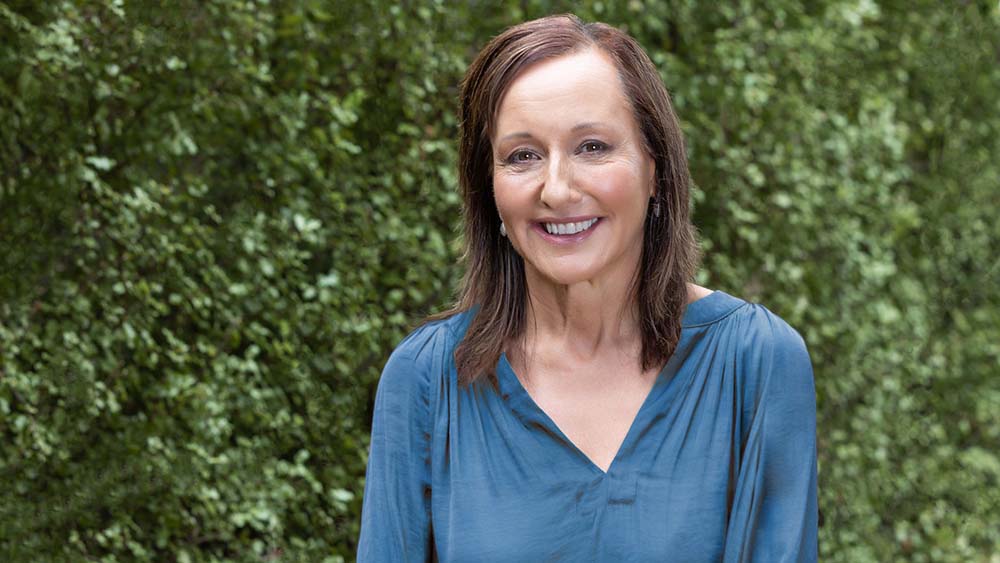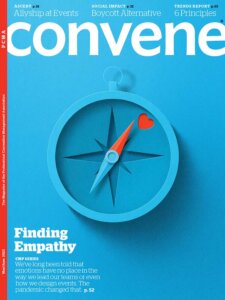
“I actually think it’s easier to demonstrate empathy virtually than it is in a work environment where you are there all the time,” said Zena Burgess, CEO of the Australian Psychological Society. “When you’re in the office the whole time, particularly in the leadership role, you’re always on show. There is no downtime.”
When Zena Burgess, Ph.D., came on board as CEO of the Australian Psychological Society (APS) in July 2020, the situation was far from ideal. Aside from the fact that she was assuming her leadership role during the pandemic, her predecessor had been terminated on very short notice. “I think she left on Friday and I started on Tuesday or something like that,” Burgess said. “I knew the organization from a distance and it had been a troubled organization for a long time. Everyone seemed a bit scared and it was explained to me that a lot of people had been made redundant, so they assumed from previous experience that I would come in and start doing the same thing.”

This story is part of our May/June cover and CMP Series story package. Find the print facsimile edition here.
It may seem counterintuitive, but Burgess said that joining APS during the height of COVID with a remote workforce actually made it less challenging for her to put a reassuring face on things. “I actually think it’s easier to demonstrate empathy virtually than it is in a work environment where you are there all the time,” Burgess, who will speak at Convening EMEA 2023 in September, told Convene. “Because empathy takes a lot of energy for a person to demonstrate it all the time. And at least when you’re online, you get breaks from it. You can go and put your wash in, you can go walk in sunshine, you can take breaks. Because when you’re in the office the whole time, particularly in the leadership role, you’re always on show. There is no downtime.”
Empathy, Burgess said, has become more of a highly valued commodity. “I think that good leaders demonstrate empathy naturally. But since COVID, it’s become a mandatory [skill] in the leadership position,” she said. And she draws a parallel between event managers and CEOs: “Our job is to create an experience of work; the event managers create an experience of a conference or an event. For us, it’s the work life and trying to make that into something that’s joyful — the vision would be emotionally connecting, helping people grow. It’s the same thing. And I think that’s why I naturally gravitate to event managers because I feel an affinity for what we’re trying to achieve.
“What I’m trying to achieve is emotional intelligence. The heroic leader leading from the front, which was very much the model years ago, is gone. And it’s very much now the leader who brings everyone along is someone [who is] respectful and interested in diverse opinions. The way you treat people with respect and consistently do so is really important. I’m a naturally curious person. I really like people. I love hearing about their lives and their stories — it’s the whole person that comes to work, it’s not one part of the person that comes to work.”
Having a staff that continues to work remotely hasn’t made that more difficult for Burgess. “One of the good things about Zoom for me is that when you have a big Zoom meeting, I find it easier to keep track of everybody than I do when I’m in the room,” she said. “You can actually read things quite well. And the research shows that the psychologist doing treatment work, clinical work, the clinical outcomes are no different, whether it’s via Zoom or face to face. And the patient’s experience is no different, whether it’s Zoom or face to face, although they prefer to come in. And part of the coming in — and that my patients have talked to me about — is that when you come in, it takes you out of your daily life and you are somewhere new. And it’s like a little bubble you go into to have a conversation about your issues.”
Which Burgess also likens to the appeal of “immersive experiences in conferences” and cross-departmental collaboration in the workplace. To that end, she has instituted an APS Festival Day where the staff all comes together to the physical office to work on challenging projects “in clusters with people they don’t usually work with. We’ll get some good ideas, but it’s more about connecting with others and connecting about new ideas together.”
That level of collaborative work to make the organization successful is new for APS, Burgess said, “because it’s been a very bureaucratic top-down organization. It’s been a very cold organization. I think I’ve spent a lot of time saying that I want the organization to be a kind place — a kind place for people to work in, a kind place for the members to interact with.”
Michelle Russell is editor in chief of Convene.
